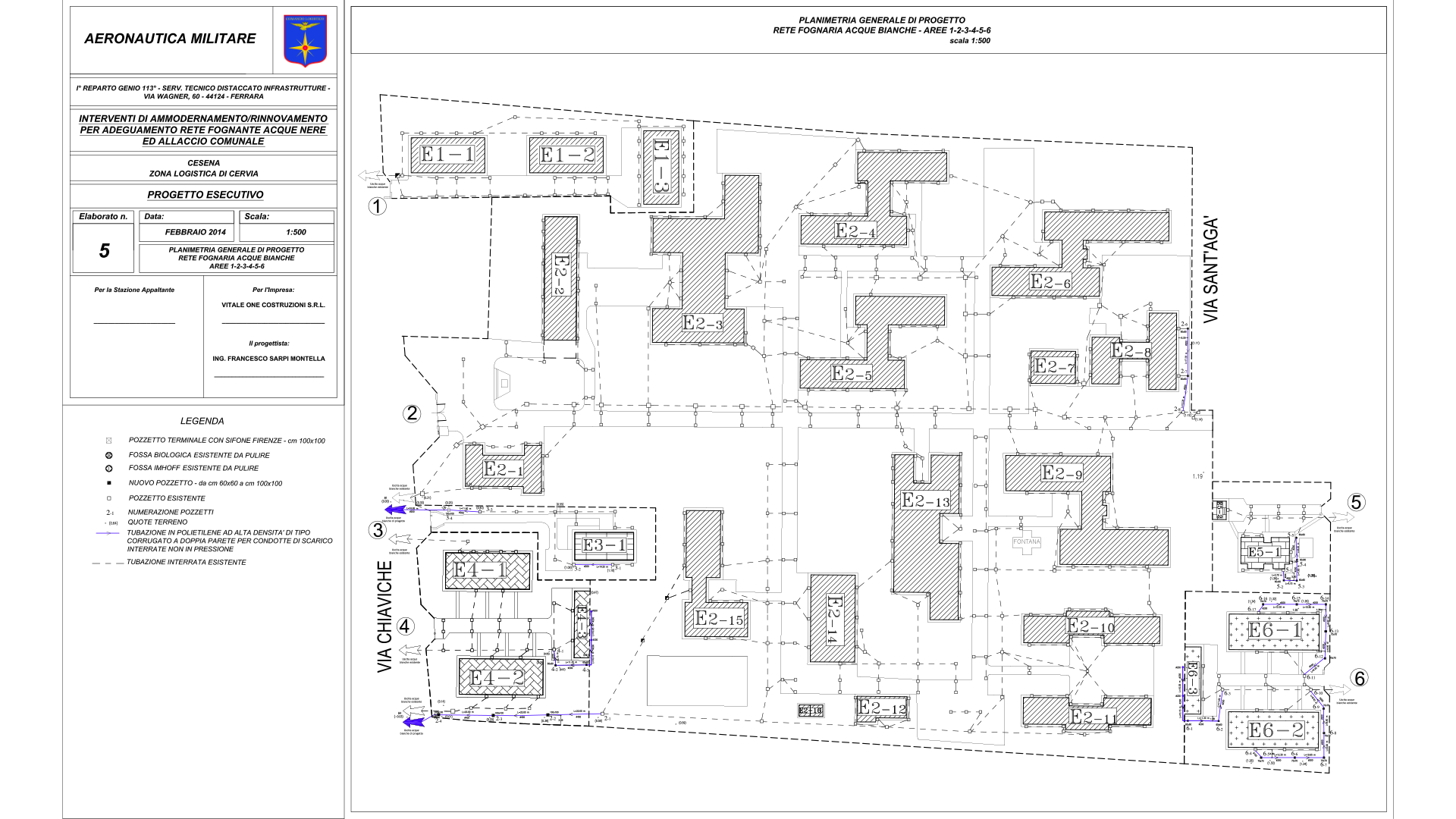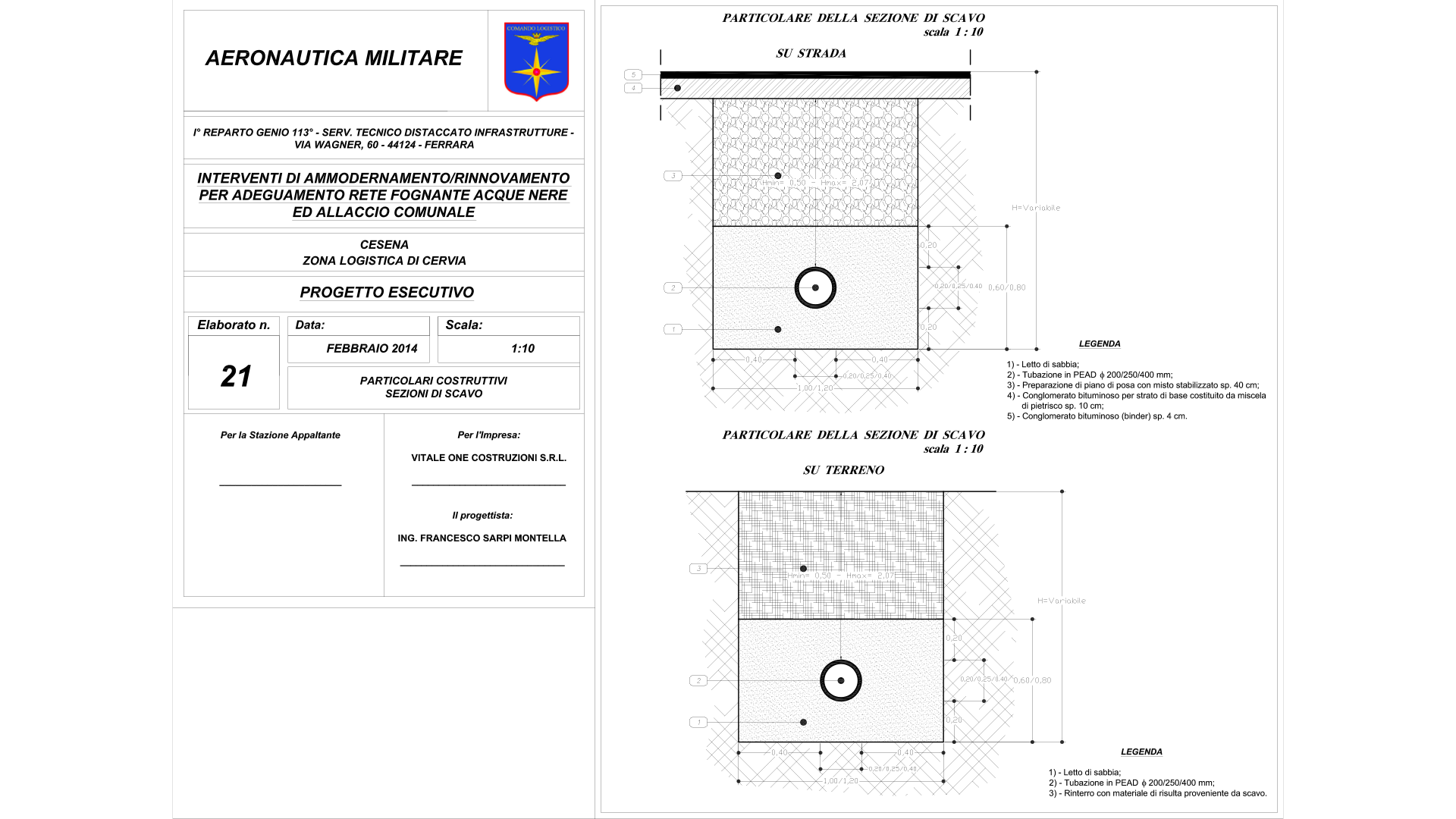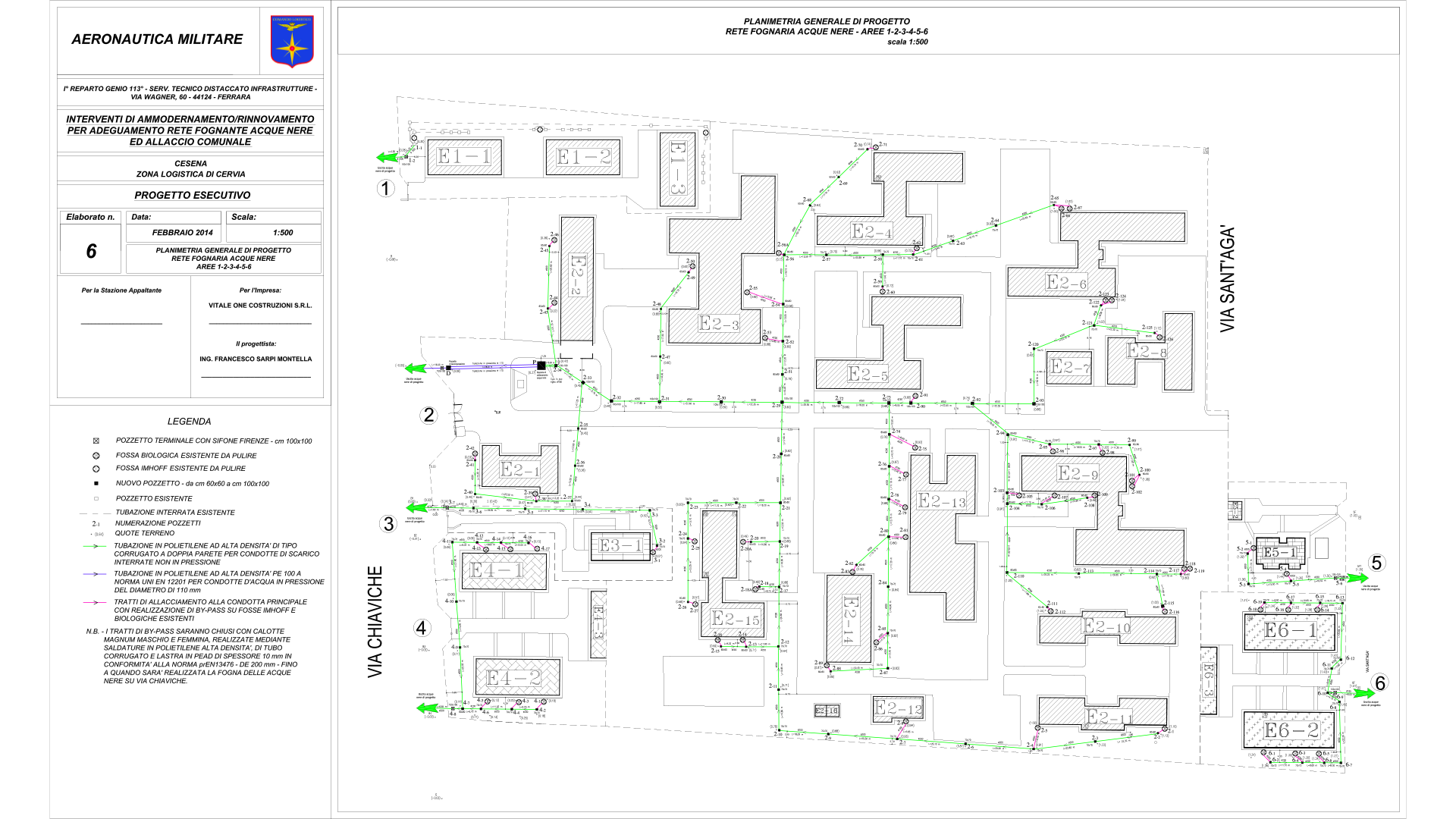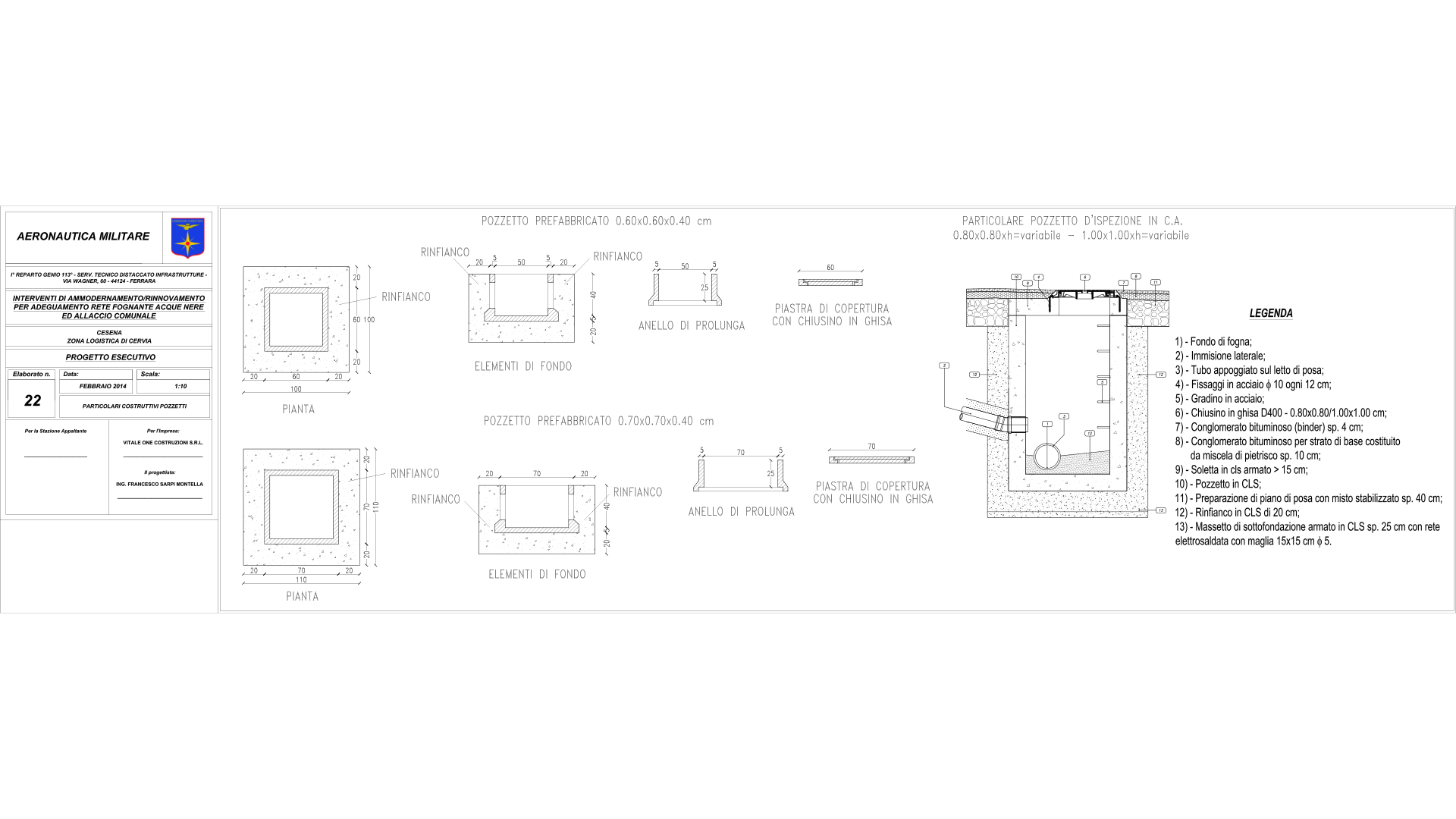Adaptation of the “Dante” school complex – Casal di Principe
16/09/2024Redevelopment of Via Santa Cecilia – Celano
16/09/2024Sewerage Network Adaptation Cervia
The Project for the Adaptation of the Sewerage Network of White Water will be carried out in the city of Cervia, with the aim of improving the management of rainwater and preventing flooding in urban areas. The intervention aims to strengthen the network of underground channels and drainage ditches, ensuring proper disposal of rainwater and protecting the surrounding environment.
The project for the sewerage network for rainwater represents a crucial intervention for the sustainable and safe management of rainwater in urban and peri-urban environments. Rainwater, which comes mainly from rain and other precipitation, requires a dedicated sewerage network, separate from the sewage network, to be conveyed to specific discharge or infiltration points.
The project involves the adaptation of a network of underground channels, aimed at collecting and efficiently disposing of rainwater. The construction of these systems includes:
- Underground pipes of various diameters to collect rainwater.
- Drainage ditches or open channels to convey water to treatment or disposal systems.
- Inspection wells to allow for ordinary and extraordinary maintenance of the system.
- Main collectors that connect the various branches of the network, conducting the water towards purification plants or collection basins.
Project Objectives
- Prevent flooding: Proper management of rainwater helps reduce the risk of flooding in urban areas, especially in areas subject to heavy rainfall.
- Soil erosion reduction: The system prevents large volumes of rainwater from flowing uncontrolled, reducing the risk of erosion and protecting infrastructure.
- Environmental protection: The separation of white water from black water helps to limit pollution, since rainwater, not being contaminated, can be returned to the environment without complex treatments.
- Water sustainability: Part of the collected water can be redirected to recovery systems for irrigation or reuse in urban areas, promoting sustainable management of water resources.
This type of intervention is essential to modernize urban infrastructure, improving the resilience of cities to the effects of climate change, such as increased frequency and intensity of rainfall.





